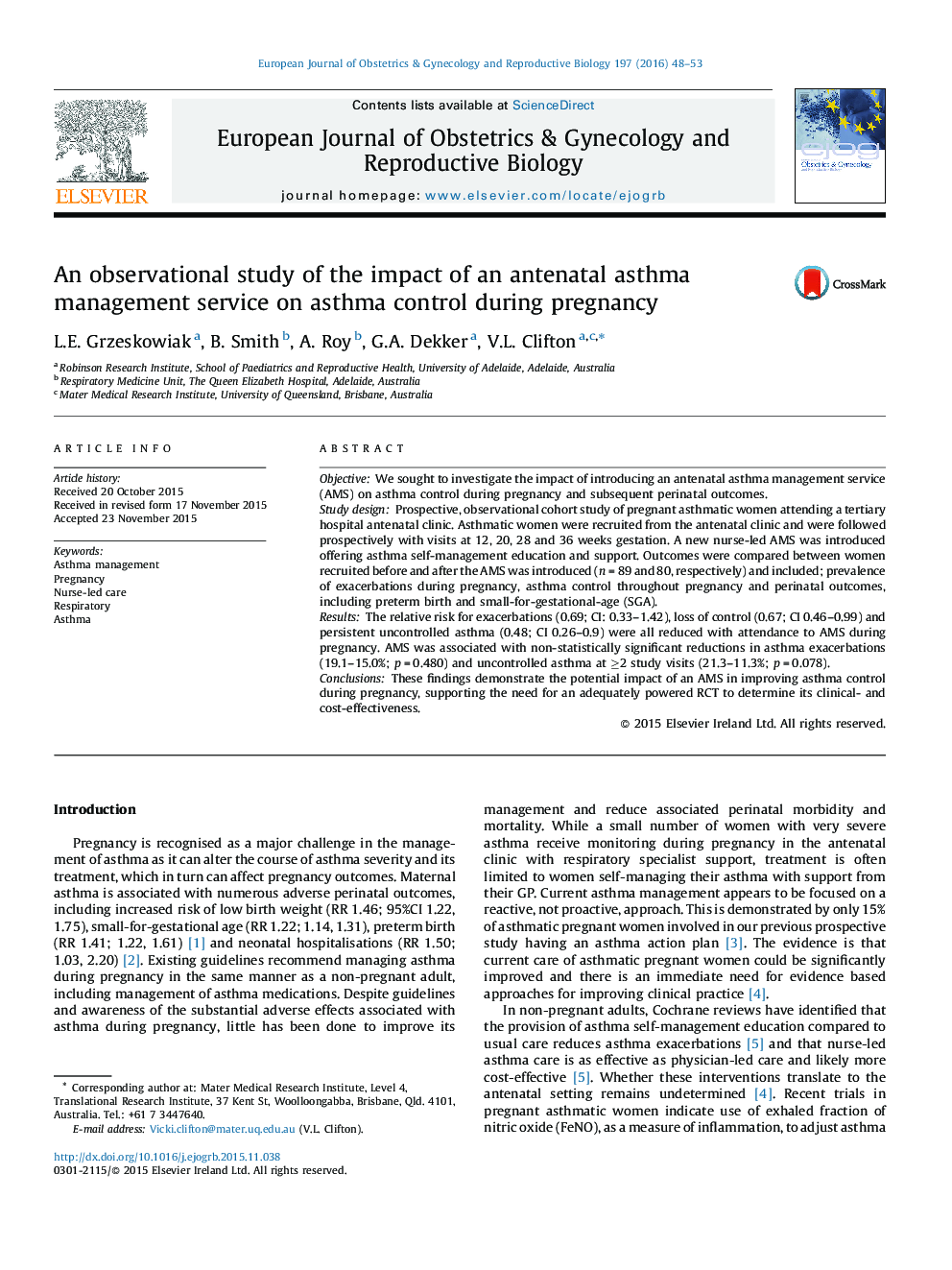| Article ID | Journal | Published Year | Pages | File Type |
|---|---|---|---|---|
| 3919444 | European Journal of Obstetrics & Gynecology and Reproductive Biology | 2016 | 6 Pages |
ObjectiveWe sought to investigate the impact of introducing an antenatal asthma management service (AMS) on asthma control during pregnancy and subsequent perinatal outcomes.Study designProspective, observational cohort study of pregnant asthmatic women attending a tertiary hospital antenatal clinic. Asthmatic women were recruited from the antenatal clinic and were followed prospectively with visits at 12, 20, 28 and 36 weeks gestation. A new nurse-led AMS was introduced offering asthma self-management education and support. Outcomes were compared between women recruited before and after the AMS was introduced (n = 89 and 80, respectively) and included; prevalence of exacerbations during pregnancy, asthma control throughout pregnancy and perinatal outcomes, including preterm birth and small-for-gestational-age (SGA).ResultsThe relative risk for exacerbations (0.69; CI: 0.33–1.42), loss of control (0.67; CI 0.46–0.99) and persistent uncontrolled asthma (0.48; CI 0.26–0.9) were all reduced with attendance to AMS during pregnancy. AMS was associated with non-statistically significant reductions in asthma exacerbations (19.1–15.0%; p = 0.480) and uncontrolled asthma at ≥2 study visits (21.3–11.3%; p = 0.078).ConclusionsThese findings demonstrate the potential impact of an AMS in improving asthma control during pregnancy, supporting the need for an adequately powered RCT to determine its clinical- and cost-effectiveness.
